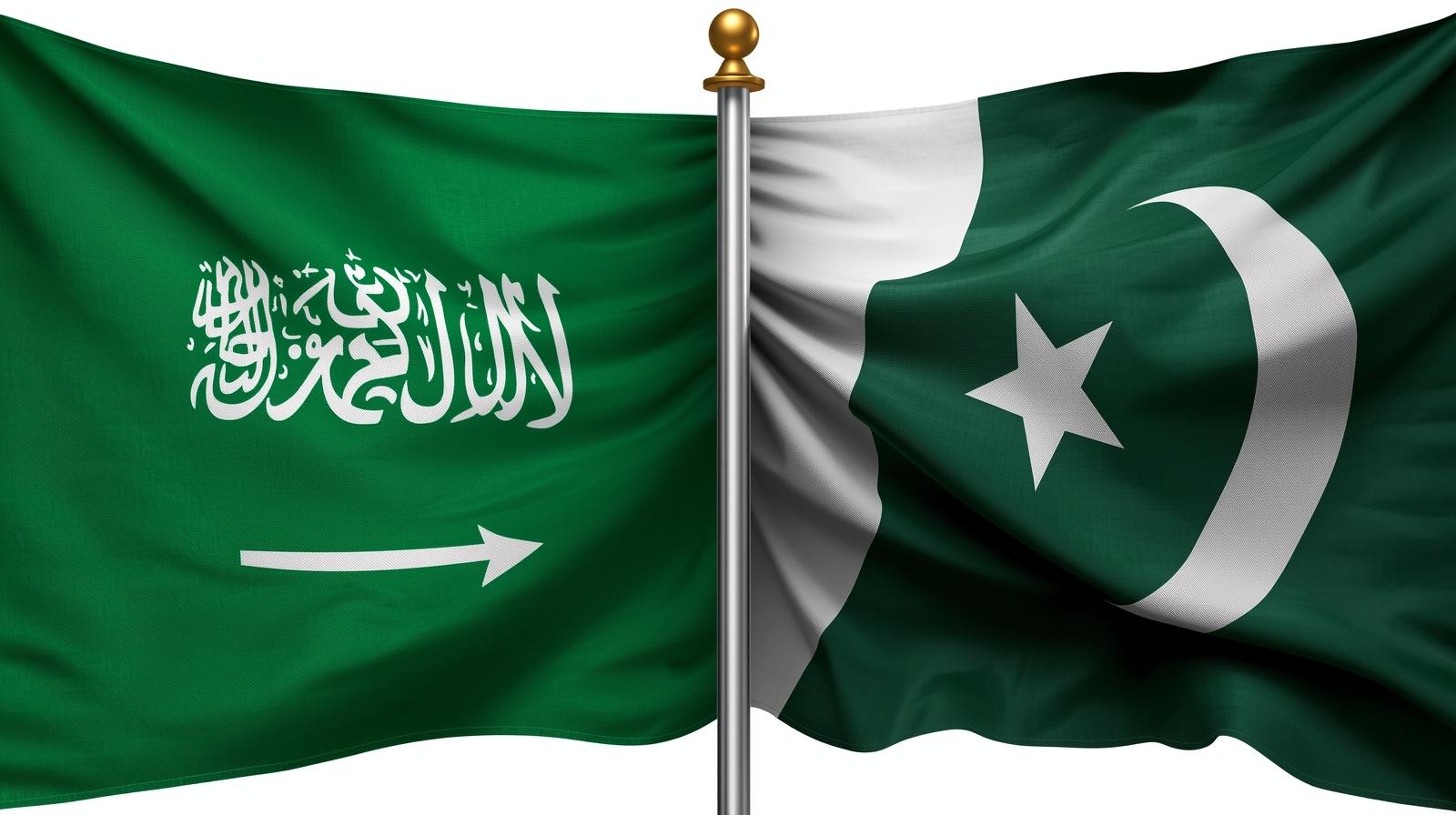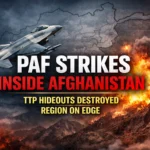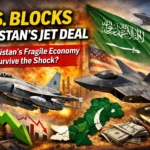By Ch.Haroon Rashid
Saudi Arabia and Pakistan signed a Strategic Mutual Defence Agreement (SMDA) in Riyadh on Wednesday, a pact analyst call historic and potentially transformative for Middle East security. The agreement declares that “any aggression against either country shall be considered an aggression against both,” effectively extending nuclear-backed deterrence to the Kingdom.
The move comes in the immediate backdrop of the Doha incident — when an Israeli airstrike in Qatar killed Hamas negotiators during ceasefire talks — a shock that exposed vulnerabilities in Gulf security and accelerated Riyadh’s push to diversify beyond reliance on Washington.
Why Saudi Arabia Needs Pakistan’s Nuclear Backing
For Saudi Arabia, the pact is more than symbolic. By aligning with Pakistan — the world’s only Muslim-majority nuclear power — Riyadh signals deterrence to both Iran and Israel.
A Gulf-based defence analyst told Reuters: “This is Riyadh’s message that it is not dependent solely on U.S. guarantees. By binding itself to Pakistan, it gains a nuclear-armed partner without formally crossing non-proliferation red lines.”
The Financial Times highlighted that the Doha strike reinforced the urgency for Gulf states to broaden their security umbrellas: “Saudi Arabia is no longer comfortable relying on Washington alone. The new pact is a sign of strategic hedging.”
What Pakistan Gains Amid an Economic Crisis
For Pakistan, the pact delivers prestige and leverage — but also potential burdens. With foreign reserves under pressure, debt soaring, and IMF conditions tightening, Islamabad views the pact as both a diplomatic triumph and an economic bargaining chip.
Potential Gains
- Liquidity relief: Analysts expect Saudi deposits of $3–7bn and oil on deferred payments, which would stabilize Pakistan’s foreign reserves.
- Investment push: Arab News reports Riyadh could accelerate projects in mining and energy that Pakistan desperately needs to boost FDI inflows.
- IMF buffer: A stronger reserve position would make IMF reviews smoother, easing near-term financial distress.
Risks
- Defence costs: Joint military commitments, training, and logistics could burden Pakistan’s already fragile budget.
- Entanglement: Analysts warn Islamabad may be drawn into Gulf confrontations beyond its core national interest.
- Short-term fix: Economists like Dr. Farrukh Saleem stress that “deposits and oil credit ease pressure for months, but without reforms Pakistan risks repeating the cycle of crisis.”
Doha Incident and Regional Security Implications
The Doha airstrike has altered Gulf strategic calculations. Analysts note that Saudi Arabia sought a visible deterrent arrangement to show that aggression in the region would face broader retaliation.
For Islamabad, aligning with Riyadh strengthens its leadership profile in the Muslim world but risks straining relations with Iran, its neighbor and Saudi Arabia’s regional rival.
As one Pakistani strategist put it: “The pact elevates us from a regional player to a global security stakeholder — but it may complicate our delicate balancing act with Tehran.”
What It Means for the United States and Global Security
The pact also carries implications for the United States. Washington has traditionally been Riyadh’s primary security guarantor, but Saudi Arabia is increasingly diversifying its defence partnerships.
By linking with Pakistan, Saudi Arabia reduces dependence on U.S. military cover — a signal that Gulf states are hedging amid doubts over Washington’s long-term commitments.
For global security analysts, the pact raises the question: does this represent a parallel security axis, with Pakistan’s nuclear umbrella extending into the Gulf?
Expert Voices
- Financial Times: “The Doha strike has accelerated Saudi Arabia’s search for diversified security guarantees beyond Washington.”
- Reuters: “The pact boosts deterrence but leaves unanswered the crucial question of who pays the bills for readiness and deployments.”
- Al Jazeera: “Without structural reforms, promised investments may not flow into Pakistan despite the defence pact.”
Outlook: Three Possible Paths
- Optimistic Path — Saudi Arabia delivers $5–7bn deposits, deferred oil payments, and quick FDI; Pakistan gains stability and IMF confidence.
- Baseline Path — Riyadh provides limited liquidity; reserves rise briefly, but vulnerability returns without structural reform.
- Downside Path — Defence obligations grow while Saudi aid remains symbolic, leaving Pakistan militarily entangled and economically strained.
Conclusion
The Saudi–Pakistan defence pact is a diplomatic milestone that elevates Islamabad’s status and signals Riyadh’s new security calculus. But the true test will be economic delivery.
If Saudi Arabia matches defence commitments with billions in deposits, oil credit, and investment, Pakistan gains the stability it desperately needs. If not, the SMDA risks becoming an expensive gamble symbolic prestige masking deeper economic fragility.
As one senior Pakistani analyst summarized: “History will judge this pact not by the signature ceremony in Riyadh, but by the cash flow and commitments that follow.”










